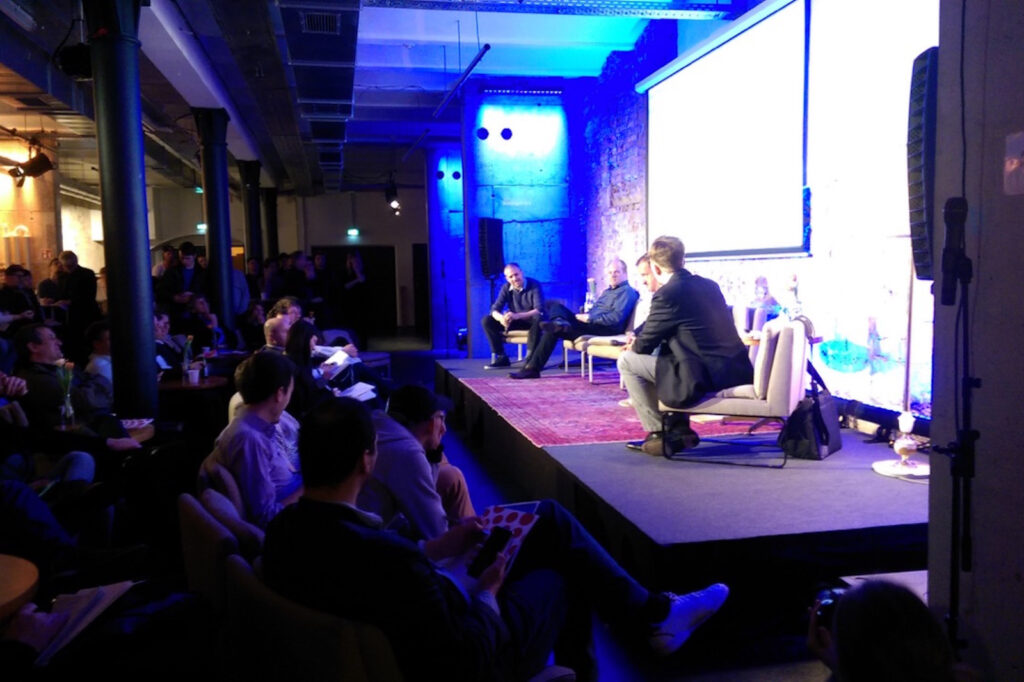What do we know about the Berlin start-up scene? What are the figures? What is a start-up anyway? How can Berlin become one of the most important start-up ecosystems in the world over the long term? These and other questions were examined in the study Booming Berlin. The study looked at the development of Berlin’s digital founder scene from 2012 to 2016. On April 6, Factory Berlin and the Institute for Strategy Development (IFSE) presented the results of the study followed by a panel discussion. Moderated by Jan Thomas, publisher of The Hundert, the panel consisted of Berlin Senator for Economics, Technology and Research Cornelia Yzer, Factory Berlin CEO Udo Schloemer, German Startups Association Vice Chairman Sascha Schubert, and IFSE founder Hergen Wöbken.
New actors and a shifting focus
One thing that is clear is that Berlin is no longer “just” a center of creative freelancers and innovators. In a few years, start-up companies will be the largest source of employment in Berlin. The number of employees at start-ups has nearly doubled over the last three years, and there is no reason to believe that this trend will change in the next several years. The study confirms the findings of other studies that have looked at Berlin start-ups in recent years. It also shows that important new players are emerging on the scene and that the issues founders focus on are changing. While the number of start-ups in the content and e-commerce categories has fallen, the number of start-ups in the services category (such as SaaS, MaaS, etc.) is on the rise. Berlin has become more tech-oriented in just a few years – a trend that is also supported by the senate, since Berlin, as an international center of science and research, offers a lot of potential in this area. And while Berlin is already among the top ten start-up ecosystems in the world, Senator Yzer emphasized that she wanted to use Berlin’s regional economic policy to strengthen young and innovative companies in Berlin through networking and partnerships. Particularly in view of the city’s growth and the shortage of available land and office space, there has to be strategic thinking for the future: creativity and innovation need space to develop.
Offering spaces and flexibility is key for further development
While the digital B2C start-up scene enjoys high visibility in the neighborhoods of Berlin Mitte and Kreuzberg, the ranks of founders in the capital will increase over the next several years through the growth of tech-based start-ups in particular. And here, too, it is important to publicize successes and talented individuals. As a center of digital research and the heart of the European start-up scene, Berlin must offer IoT- and urban-tech-based start-ups just as much as the digital scene – the city already has the conditions necessary for doing so. Thus, the discussion ended with a positive look toward the future: the economic development that Berlin has seen over the last few years is due in part to the start-up scene that has brought innovation and vitality to the city. But that doesn’t mean that it’s exhausted its potential. The city and start-ups will profit in particular if international players and German SMEs are provided with opportunities to network and interact with innovative start-ups and develop ideas for the world of tomorrow. Find out more about the study here.
